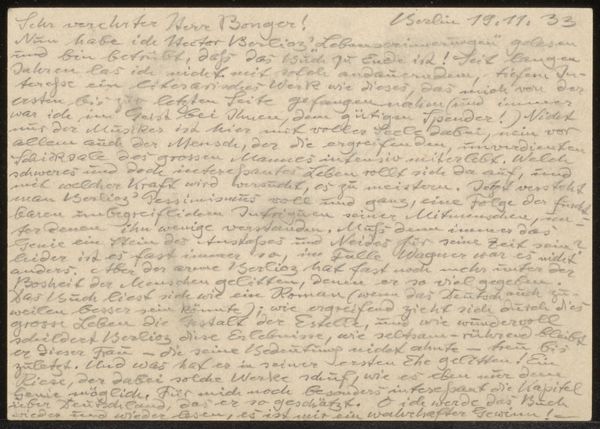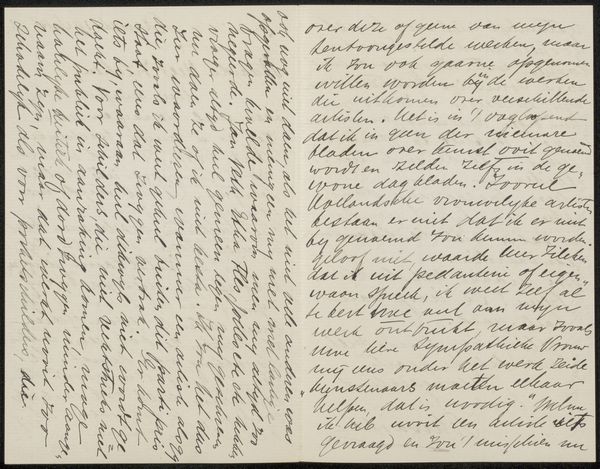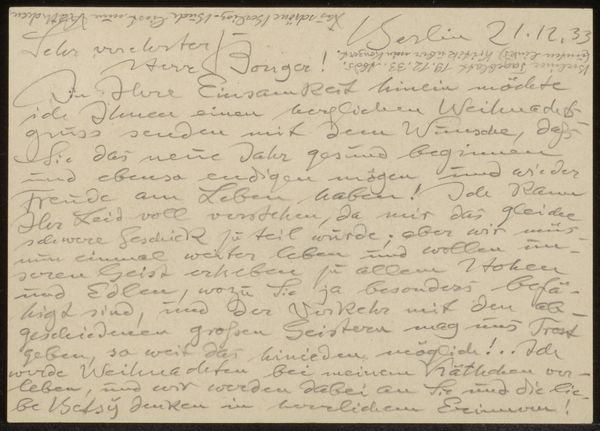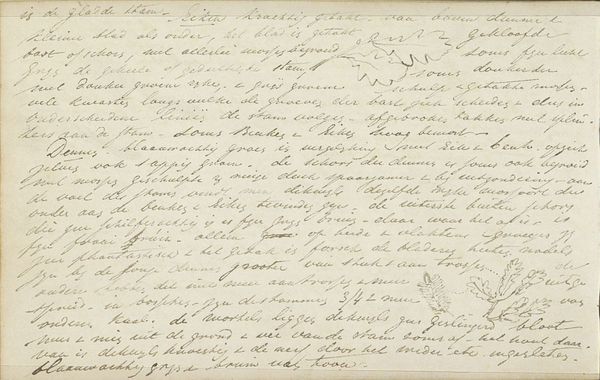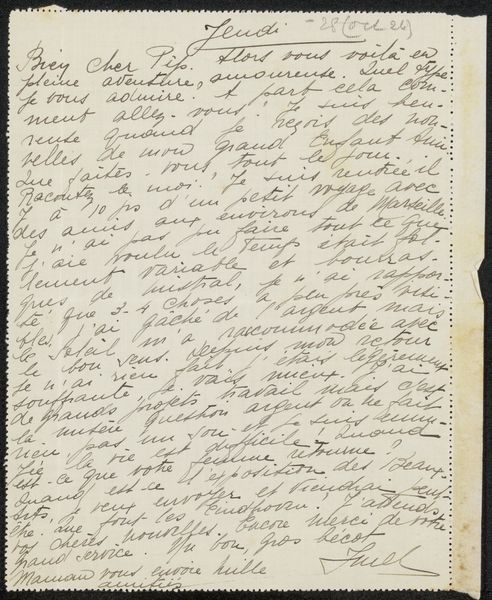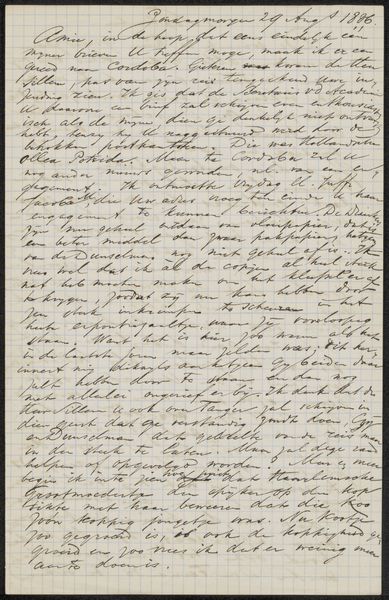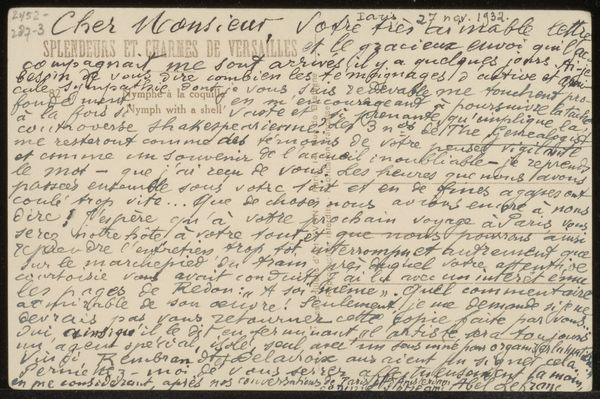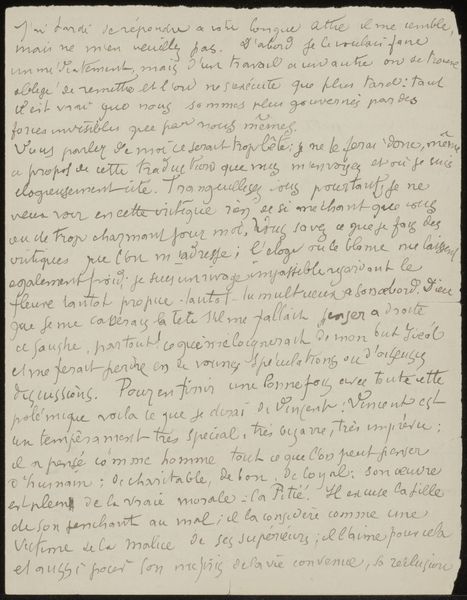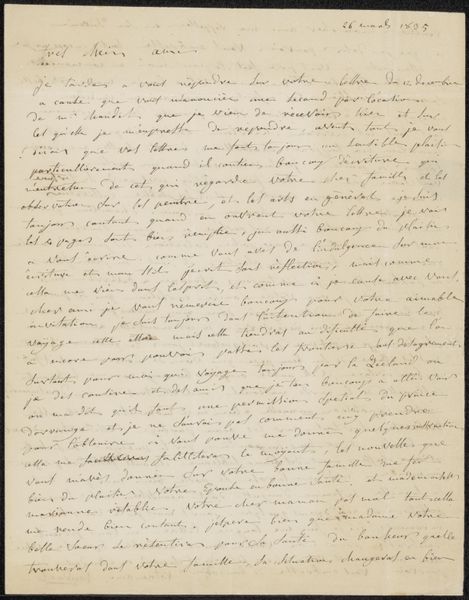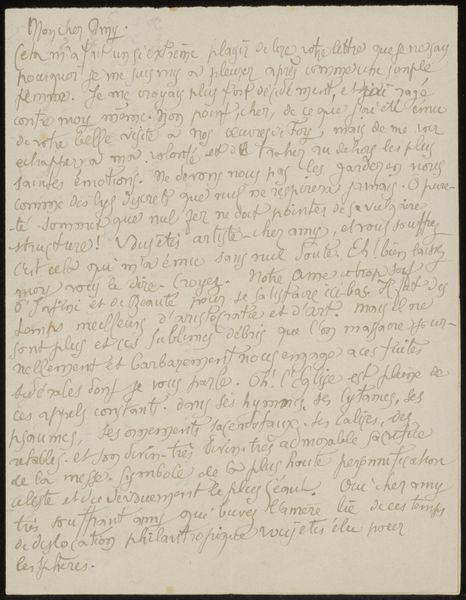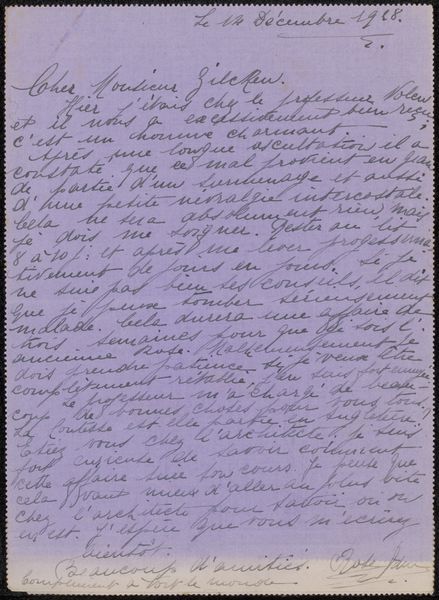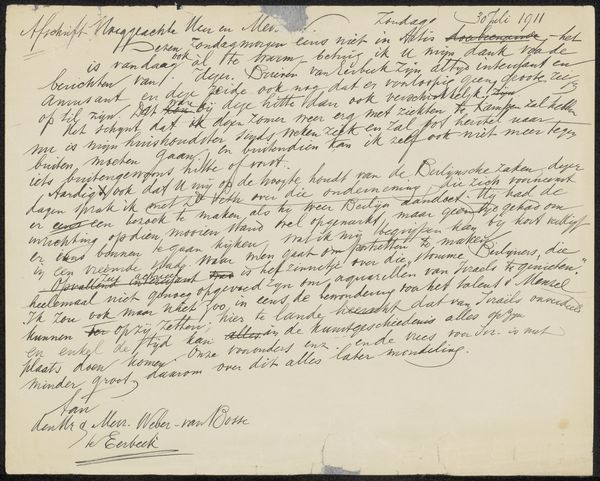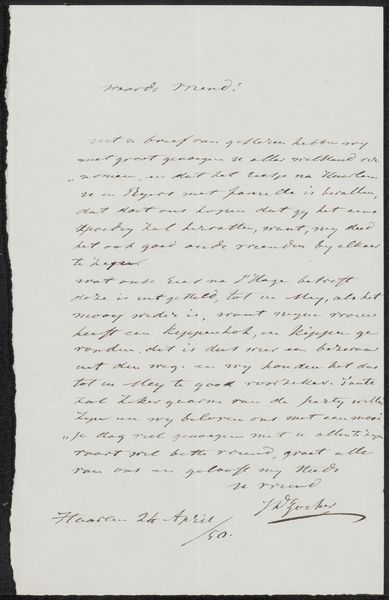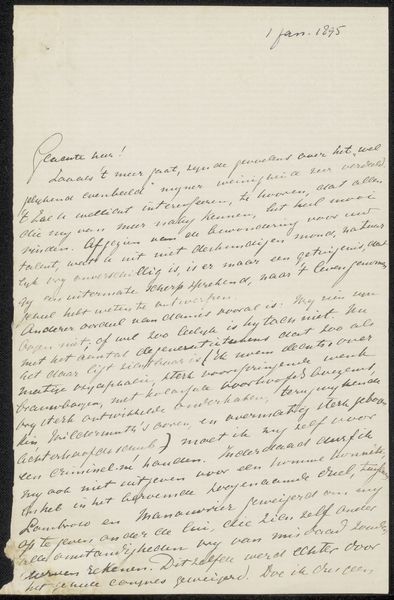
drawing, paper, ink
#
drawing
#
hand-lettering
#
hand drawn type
#
paper
#
personal sketchbook
#
ink
Copyright: Rijks Museum: Open Domain
Curator: Let's turn our attention to this drawing titled "Briefkaart aan Andries Bonger." Created sometime before 1934 by Richard Wintzer, it’s executed in ink on paper. My eye is immediately drawn to how Wintzer uses hand-lettering, something that makes the whole composition quite lively, don't you think? Editor: Oh, it feels like eavesdropping on someone's thoughts! Chaotic but intimate, you know? All these scribbled lines create this frantic energy, as if words are tumbling out of the pen. There’s a density to it, almost suffocating. Curator: Given the context, that intensity makes sense. This isn’t just any artwork; it's a postcard, a direct communication. Bonger was a vital conduit for Impressionist and Post-Impressionist art making its way to the Netherlands. Correspondence like this, and Bonger’s championing, was a crucial ingredient in forming tastes and markets. Editor: That gives it a totally different vibe. To me, it’s so raw and personal. I immediately felt this sense of unease, and perhaps urgency, when confronted by the writing. But hearing you discuss Bonger's importance gives me an awareness that there might be business going on behind these hastily scratched sentiments. Curator: Exactly. And Wintzer was also involved in some political activism, right? We get the term "Revolution" popping up, with an excited exclamation. Knowing his political bent, seeing that direct, unfiltered script adds another dimension. It moves beyond being just correspondence. Editor: See, now the handwriting makes more sense. Almost like code – words piled up on top of one another like brickwork to make meaning, obscuring meaning and inviting speculation all at once. The more I study it, the more that intensity screams from the paper. So even though I initially felt overwhelmed, now I sense this vital energy in the act of sharing ideas through art. Curator: It truly demonstrates the intersection of personal expression and socio-political concerns of the time. I’ll definitely look at Wintzer's work in a fresh way after considering these different viewpoints!
Comments
No comments
Be the first to comment and join the conversation on the ultimate creative platform.
